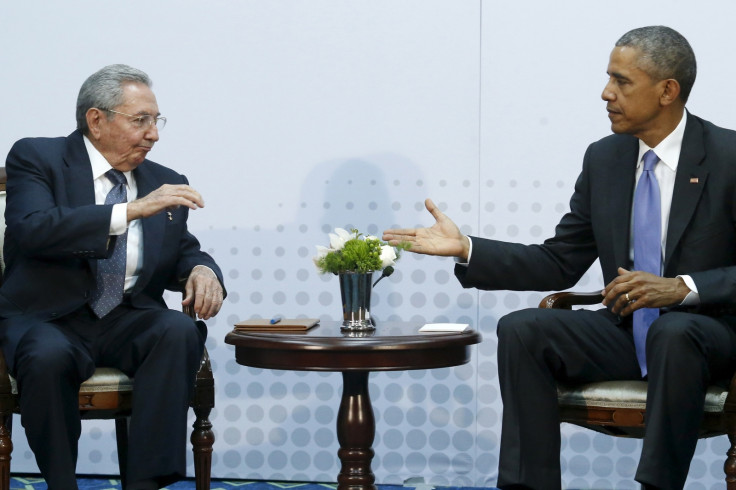Cuba hails US move to remove Havana from list of terror sponsors

Cuba has praised the US's decision to remove Havana from the list of state sponsors of terrorism following President Barack Obama's official announcement.
The move has come amid a barrage of diplomatic efforts to normalise ties between former Cold War rivals.
Cuba, which was one of the four countries blacklisted by Washington as sponsors of terrorism, welcomed the move by the US State Department. Iran, Syria, and Sudan are the other three nations which remain on the list. Cuba has been on the list since 1982.
"The Cuban government recognises the just decision made by the president of the United States to remove Cuba from a list on which it should never have been included," a statement from the Cuban foreign ministry's chief for US affairs Josefina Vidal, said.
The televised statement broadcast on Cuba's state-run channel added: "Our country has been the victim of hundreds of terrorist attacks. They cost the lives of 2,478 people and injured 2,099 Cuban citizens."
Cuba added that the communist-run country "rejects and condemns" all acts of terrorism.
Obama's decision put forth to the Congress has come after his historic meeting with Cuban leader Raul Castro on the sidelines of the Summit of the Americas in Panama.
Cuba's designation in the US list was a key sticky point in the quickly improving US-Cuba ties. The lifting of Cuba's name from the list will also facilitate the process of setting up diplomatic missions in each other's soil. This will also alleviate some of the economic sanctions on Cuba which Havana says are necessary to reopen the embassies.
Cuban experts and the public are equally happy over Washington's latest move. Esteban Morales, a political science professor at the University of Havana, told Associated Press: "This is important because it speaks to Obama's desire to keep moving forward. Now there are no political obstacles. What remains are organizational and technical problems, which can be resolved."
The Republican-controlled Congress has 45 days either to back or oppose Obama's decision before it comes into effect. However, the trade embargo remains in place against Cuba which can only be ended with the help of the Congress.
Though Obama's announcement was widely welcomed, some Republicans have also criticised it. Senator Marco Rubio, a Cuban-American from South Florida who is also running for US presidency, condemned the move saying Cuba was actively helping North Korea to beat the economic sanctions and remains a state sponsor of terrorism.
© Copyright IBTimes 2025. All rights reserved.





















